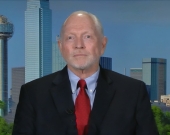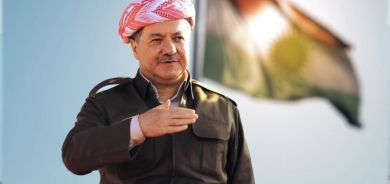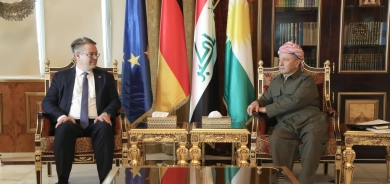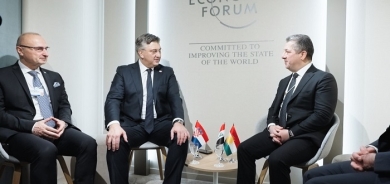Global Geopolitics in Transition: Professor Yannis A. Stivachtis Speaks with Gulan Media

Dr. Yannis A. Stivachtis is a distinguished professor of political science and the Jean Monnet Chair at Virginia Tech. His expertise lies in European Union Studies, international relations, and regional international systems in Europe, Eurasia, and the Middle East. He has authored numerous books and publications and serves as editor of the Critical European Studies book series and co-editor of the Athens Journal for Mediterranean Studies. Dr. Stivachtis is actively involved in various academic and research institutions, including director of the Center for European and Mediterranean Affairs and vice-chair of the Marie Sklodowska-Curie Individual Fellowships Program of the European Commission-Research Executive Agency.
In this insightful interview, Professor Yannis A. Stivachtis, a renowned expert in political science and European Union studies, discusses various global issues and their implications. From the challenges facing the international liberal system to the transformative changes brought about by conflicts like the one in Ukraine, the interview sheds light on the complex dynamics of today's geopolitical landscape. Additionally, the discussion delves into the role of China and Russia in the Middle East and the need for greater international support for stability in the Kurdistan region of Iraq.
Gulan Media: While the Trump administration declared in 2017 that the post-1945 liberal order was no longer beneficial for US defense, in reality, the liberal system faced a significant blow in 2014 when Putin forcefully annexed Crimea. Moreover, following the Russian-Ukrainian war, Russia has openly been working towards establishing an alternative global system that opposes liberalism. Given these circumstances, do you believe that the international liberal system has come to an end and that an alternative world system should be pursued?
Professor Yannis A. Stivachtis: Thank you very much for your question. To begin with, I would like to say that the first warning for the future of the liberal international order came in 2007 with President Putin’s speech at the Munich Conference. In 2014, it was the moment that Russia signaled through its actions that things would change unless the West changed its approach towards Russia.
A second point I would like to raise is that what happens in Ukraine is no doubt a violent conflict, but I think reflects exactly what the term ‘special military operation’ is all about. For Russia, legally, this is not war. The war implies something more in the practice of the Russian army and politically requires the vote and the approval from the Russian Duma. So, this is really a special military operation but a violent conflict, nevertheless, where people from both sides die.
My third point is that of liberalism has two branches, political liberalism and economic liberalism. Economic liberalism usually refers to access to global markets, free market economy, and so on and so forth. Political liberalism includes, human rights, democracy, and the rule of law, but also implies that international relations should be based on the idea of sovereignty, sovereign equality among states, and equality before international law. The West, however, tends to focus more on democracy and human rights and not so much on sovereignty and sovereign equality. Due to power differential, western powers do not in practice see themselves as equal, let's say, to the countries in the developing world. Thus, the distribution of power not only results in a global power hierarchy but also allows outside political, military or economic intervention in the domestic affairs of smaller powers thereby undermining their sovereignty.
Economic liberalism constitutes an even greater threat to the development of the non-western world in the sense that is seen as providing or supporting the interests of the advanced industrial states and economies of the West at the expense of the rest of the world.
Something I forgot to mention is that as far as political liberalism is concerned, we should not forget that many countries that supposedly belong to the West have not been very democratic themselves. Turkey, for instance, is part of the Western world, but many in the West do not consider it as being very democratic. Poland and Hungary are part of the Western world, but as you mentioned, they have not, for some time, been viewed as very democratic. So, whether there is really a liberal international order is a question mark. There is no problem with a liberal international order as long as its principles are not applied selectively. And it is this selectivity that invites resistance in the non-western world.
Certainly, what happens as a result of the outbreak of violent conflict in Ukraine has led to a kind of contestation of what we call liberal international order. This is not only promoted by Russia, but also by China and India, as well as many other countries which see their future through membership of the BRICS, and/or the Shanghai Cooperation Organization. If the liberal international order was liberal in every sense, then there would not be a big problem. But it has not been so liberal in practice, and this has allowed all those countries, including Russia and China, that are not happy with the West, to promote a kind of different type of international order. For the time being, and for years to come, the international community will be divided and the international order will be based on two pillars: the West and the Rest with the latter being led by Russia, China and India.
Gulan Media: Professor, just to clarify the last part, do you mean that, for the time being, a new alternative world system will not be pursued?
Professor Yannis A. Stivachtis: No, an alternative to the western liberal international order will certainly be pursued in the coming months and years, which will lead to two competing international orders: one pursued by the western countries and one pursued by the countries of BRICS or Shanghai Cooperation Organization.
Gulan Media: the conflict in Ukraine represents a significant departure from the post-World War II era. As it, as it is the first major war in Europe since that time, with U. S. led NATO forces and Russia, along with other nations involved in this confrontation. The statement by Charles Tilley holds relevance today. War made the state, and the state made the war. Given these circumstances, to what extent do you anticipate that Putin's war will bring about transformative changes in the world?
Professor Yannis A. Stivachtis: The conflict in Ukraine has demonstrated that the Western powers miscalculated both the Russian and their own economic and military capabilities. As a result, we are going to have a transformative change reflected in the establishment of a multipolar international order with the inclusion of Russia, China, India, and, of course, the United States.
One of the biggest surprises is that the West misread the Russian economic and military capabilities only to recently realize that their own industrial-military capabilities are not so competitive in relation to the Russian ones. Thus, it’s not by accident that General Milley recently called Russia a superpower. So, we now clearly have three superpowers, namely the United States, China and Russia and to those countries, we could add India, which slowly but steadily emerges as a superpower. In this sense, we are already moving to a multipolar world. This is a transformative process in the sense that the global power distribution has changed. We had the bipolar international system during the Cold War. Then, we moved to the unipolar world with the United States as the sole superpower and now we move to the multipolar world. This is a transformation in terms of distribution of global power.
Gulan Media: Putin's incursion into Ukraine draws parallel to Saddam Hussein's invasion of Kuwait in 1990. Back then, the international community vehemently rejected Saddam's action and forcibly ousted him from Kuwait. However, today, figures like Henry Kissinger are advocating for a de facto acceptance of the conflict, followed by attempts to address the issues through peaceful means and dialogue. Does this imply that the fundamental principle of the state sovereignty, which underpins the international liberal system, is now obsolete?
Professor Yannis A. Stivachtis: In my opinion, we cannot compare the Kuwaiti case with what happens in Ukraine. In the case of Kuwait, it was a clear invasion and occupation of one country (Kuwait) by another (Iraq). Politically, we can argue that in both cases a country invaded another country but legally the two cases are not necessarily the same. In Ukraine, the conflict started already in 2014 and soon led to the signature of the Minsk Agreements which Russia and Ukraine signed and France and Germany undertook the responsibility to monitor their implementation. The Minsk Agreements were also included in a UN Security Council Resolution and thus their implementation became a matter of international law. The Minsk Agreements, however, were not implemented by Ukraine. Therefore, a case can be made, at least politically (because under the existing conditions the case can never go to the International Court of Justice under these conditions) that Russia had the right to intervene to protect the people of eastern Ukraine who shared the Russian culture and language and whose lives were under threat by the operation of Ukrainian military forces. In other words, Russia could make the case that acted according to the ‘responsibility to protect’ principle. And this idea of the ‘responsibility to protect’, which is in accordance with international law, can also be supported by the fact that Angela Merkel and François Hollande, the leaders of Germany and France, respectively, recently indicated that they didn't actually intend to implement the Minsk Accords. In other words, they didn’t intend to implement the relevant Security Council Resolution. This does not show great respect for international law by Western powers and legally allows Russia to make a case. So, the two cases, Kuwait and Ukraine are not the same.
Under existing conditions dialogue cannot proceed. The reason is that the dialogue that took initially place between Ukrainian and Russian officials with the mediation of Turkey and resulted in an agreement was not eventually implemented by Ukraine. Although an agreement was reached, the then British Prime Minister Boris Johnson traveled to Kiev and convinced President Zelensky not to go along with what Ukraine and Russia decided because Ukraine with the assistance of NATO could defeat Russia. So, that was the end of diplomacy. At this moment, one cannot see any possibility for a new round of negotiations unless one of the two parties becomes militarily very weak and faces defeat. Moreover, it does not seem that Russia trusts the United States and after what happened with the Minsk Agreements, Russia does not certainly trust the European powers, especially Germany and France. Also, I don’t see that the United States being interested at this moment to involve in negotiations with Russia. For the reasons I mentioned previously, the situation may change tomorrow but currently I don’t see any possibility to find a solution through peaceful means and dialogue.
Gulan Media: Why do you think is that, professor? Why are they prolonging this war?
Professor Yannis A. Stivachtis: This is an extremely important question and there are reasons for that. In the West, we have the tendency to focus on whether Russia has achieved its strategic and operational objectives but we don’t discuss about whether our own strategic and operational objectives have been achieved. The sanctions have, so far, failed to affect the Russian economy while an argument can be made that, in fact, sanctions have strengthened the Russian economy. President Putin is still on power and the Ukrainian conflict has solidified popular support for him. Russia occupies 20% of the Ukrainian territory and, so far, it seems impossible for the Ukrainian forces to push them out. The conflict has brought Russia and China together making it difficult for the West to deal with either power. Moreover, Russia, China and to some degree India push for a new, alternative international order which would have significant political and economic implications for the West. At the same time, the European economies are in disarray and the dissatisfaction of the European publics is steadily growing. Last, but least, there is a realization that the West is not so strong militarily while the increase of its industrial capacity is questionable. So, at this moment, the West has not achieved its objectives; something that can be translated into a defeat, especially for the U.S. government. After what happened with the withdrawal of the American forces from Afghanistan, having a situation that shows that the primary objectives of the United States cannot be achieved is a major political problem. So, western countries prefer the continuation of the conflict in Ukraine to see what happens down the road with the hope that the Russian forces will be demoralized, the Russian economy will collapse, and Putin will be overthrown and will be succeeded by someone who will terminate the special military operation. But hopes do not necessarily change things.
From the Russian side, the continuation of conflict is seen as advantageous in the sense that their economy can support a longer war while their military and industrial capabilities surpass those of the West. Moscow may also believe that the growing dissatisfaction of the Western publics, especially in the United States, will change the political dynamics as people might wish to see more money invested in their own problematic economies than given to Ukraine. And if this happens, then Russia will be in a position to dictate the outcome. Therefore, albeit different reasons, both sides at this moment prefer to prolong the war. The problem is how long Ukraine can go on. What would the future of the Ukrainian forces be, since they have already gone through several rounds of mobilization.
About the principle of sovereignty now. Yes, we can certainly say that Russia has undermined the sovereignty and territorial integrity of Ukraine. That is a fact that nobody can deny but we should not forget that the United States currently occupies part of the sovereign state of Syria as well. So, clearly for political reasons, we focus on a particular state’s sovereignty and disregard other cases. But that is not how international law works. If we have to speak about international law, we have to see what all countries do. But what we do is just use political statements for public relations and propaganda purposes with the hope that the public buys into the argument.
Gulan Media: is the European Union, which Britain was once a member of, no longer maintains the same level of cohesion and strength as before. Within this union, certain countries like Hungary and Poland have openly expressed their resistance to upholding liberal democracy. Given this situation, what implications does this hold for the future of the European Union?
Professor Yannis A. Stivachtis: Because of what happens in Ukraine, the economies of European states have been seriously affected. Especially the economy of Germany. And as you know, Germany has been the locomotive of the European integration process and the main economic and industrial pillar of the European Union. But Germany has moved into recession and there is ‘no light at the end of the tunnel yet.’ France also faces political and economic problems. Many other European countries face economic challenges while at the same time face issues regarding refugee and migration flows. All these problems combined give more and more power to non-traditional political parties in Europe. They have a different understanding of the European Union. Most certainly, they don't want to see the European Union as moving towards further political integration. Instead, they want to see either a Union that its operations are based entirely on the will and agreement of its sovereign states rather than that of the European Commission and other supranational organs or to see the dissolution of the European Union.
Thus, political, social, economic, monetary and financial issues have challenged the unity of the European Union. This unity is easier to be maintained in the area of trade but very difficult to be maintained or pursued in the political, security, and defense fields. Different states have different approaches to their own security and different interests. The right-wing political parties will challenge the traditional political parties and they might move to a direction that gives more power to the EU member states than the European Commission. So, challenging times come for the European Union. And the more the European Commission and the current leaders of the EU’s member states try to move for more integration, the more backlash might encounter. And it's not only the European Union; NATO will have problems too. However, organizations like the European Union or NATO will never be dismantled. Usually, organizations start losing their importance and slowly become dormant. They will continue to exist, however, with their supporters hoping that down the road new circumstances will arise to make them again prominent. So, despite the differences that exist among their member states and the challenges they face, the European Union and NATO will try hard to portray their unity.
Gulan Media: Following the events of the Arab Spring in 2011, the Middle East underwent a period of instability and disorder. This situation created favorable conditions for Iranian influence to expand within the region. Alongside the emergence of numerous terrorist groups, with ISIS being one of the most dangerous, despite the destabilization impact of the region's instability on international peace and security, why is there a lack of collective international effort to stabilize the Middle East?
Professor Yannis A. Stivachtis: First of all, at this moment, the international community is divided and so is the UN Security Council. Consequently, the international community cannot effectively address issues in the Middle East. Because of colonialism and neocolonialism, as well as due to power politics we have many conflicts in the Middle East and without having a unified international community, nothing can happen. The question is, now, if the United States decides to pivot 100% to the Pacific region. This would allow Russia and especially China play the role of the mediator(s) in regional conflicts in the Middle East. This might help to address current regional conflicts and possibly create an environment that is more about economic development and trade not only among the countries of the region but most importantly between the countries of the region, on the one side, and countries like India, China, and Russia, on the other.
Currently, the United States does not seem to be able as before to involve in the Middle East. The US is really challenged by what happens in Ukraine, as well as in East Asia. It's very difficult to convince the American public to open another front in the Middle East. At the same time, the involvement of China led to the rapprochement between Iran and Saudi Arabia while other countries in the Middle East seem to be interested in joining the BRICS or the Shanghai Cooperation Organization. Therefore, the regional balance of power approach of the West, which has militarized regional international relations, may be substituted by a more stable and relatively peaceful regional relations based on trade, business and economics.
Gulan Media: Professor, you said that with America backing off slowly, that other countries like China and Russia might assume that position in the Middle East, correct? Yes. Well, so, well, yeah, but well, then how significant was the deal between Iran and Saudi Arabia when China was the one who mediated it? What is your opinion on that? Does that mean that they have successfully usurped America in the Middle East? said, does that mean that China or other countries are trying to success or at least like if nothing, then it's the beginning of trying to usurp America in the Middle East or replace it?
Professor Yannis A. Stivachtis: We should not forget that President Obama declared that the United States should pivot from the Middle East to the Pacific region. So, this idea has been in the minds of the several US officials for quite some time now. The problem today is that even if the US wanted to remained closely engaged in the Middle East it might not be able to do so, at least to the degree Washington would wish. Economic problems at home coupled with the challenges posed by Russia in Ukraine and China in Taiwan would reduce the ability and willingness of the United States to heavily involve in Middle Eastern affairs. In other words, the United States won’t be able to be everywhere.
China's involvement in the Middle East is not necessarily the result of a conscious policy. China has not sought to replace the United States as a regional power in the sense that Beijing has had a strategy of confronting the United States in the Middle East and pushing it out of the region. Instead, China has been able to involve in the Middle East because the United States has left a diplomatic and economic space that allows for such a regional intrusion by Beijing.
Gulan Media: so what you're saying is China is not replacing the United States, but mainly filling the hole that the United States left in the Middle East?
Professor Yannis A. Stivachtis: Yes, China will do it. The Chinese will go everywhere for business purposes. They will create economic and business ties. They will get and they will give. And they will do it because the United States slowly withdraws from the region either by design or by necessity. The same thing happens in other parts of the world. The withdrawal of the United States creates a gap that allows primarily China and secondarily Russia to fill it up.
Gulan Media: Thank you Mr. Professor. Moving on to moving on to our last question which is in the intricate landscape of the Middle East. Iraq holds significant influence as a country and we as a part of the Kurdi, the Iraqi state, the Kurdistan region, finds itself within a country that lacks the rule of law. And also a constitutional framework, resembling more of a militia state. What will be the eventual outcome for this situation in Iraq? And furthermore, how much international support does the Kurdistan region receive from the international communities? Considering that it has become a haven for freedom and co existing among diverse religions and ethnic groups in the Middle East.
Professor Yannis A. Stivachtis: You are absolutely right. The problem is that not enough has been done to help the Kurdish part of Iraq. Always something happens that has priority over what happens in Iraq. Iraq is a very important country not only because it is located in the Middle East but also is Eurasia’s neighborhood. This is extremely important. Iraq occupies a very important geographical and strategic position that makes the country politically and economically attractive. Of course, this creates both threats and opportunities for the Iraqi people, in general, and the Kurdish people in particular. Perhaps things may change as a new environment arises. And I go back to the previous question. If we have more peaceful relations and we manage to replace military based relations with economic based relations, this would help the development of Iraq and the Kurdish population of the country. This may also lead to the receiving of more economic assistance.
Gulan Media: Is this with China or with America?
Professor Yannis A. Stivachtis: Due to the economic issues at home and the US investment in the Ukrainian conflict, I don't think that the United States will be able to provide substantial economic assistance. Of course, many countries may wish to help the Kurds, but I don't know whether they would do it because the Kurds deserve it or because it benefits those donor countries politically.
For political reasons, the international community has failed to provide the Kurds in Iraq the assistance needed for their economic, social and political development and stability. Given the successes and commitment of the Kurdish people, the international community should effectively engage with the Kurdish community in Iraq. The international community should be really concerned about the development of the Kurdish region and not just for political and security reasons. So, I do hope, because at this moment it doesn't happen, that a new environment emerges in the Middle East that would benefit the region as a whole and the Kurdish people in particular.
Gulan Media: Well, thank you so much, Mr. Professor, for giving us this opportunity today. These were the six questions that we have prepared for you. If there is anything that you would want to discuss or you want to add on so that we can also feature it in our magazine, feel free to,
Professor Yannis A. Stivachtis: First of all, I'd like to thank you very much for your invitation. It has been a great honor and pleasure working with you over the years and I'm looking forward to future exchanges. But the last thing I would like to note is that we live in a transitional period. Things will not happen overnight. And sometimes we may have some surprises. So, I do not expect the multipolar world order to be firmly established tomorrow. But we move towards this direction. And as far as the Middle East is concerned, it's also in a period of transition. And we have to see how things develop. Especially in relation to Turkey. Because there have been discussions about Russia successfully mediating the Turkish-Syrian conflict but we haven't seen that yet. But if it happens, it would contribute significantly to the stability in the Middle East. But we're still in the transitional period. So, let’s hope that things can move forward instead of one step forward and two steps back. But that's what happens with transitions.















